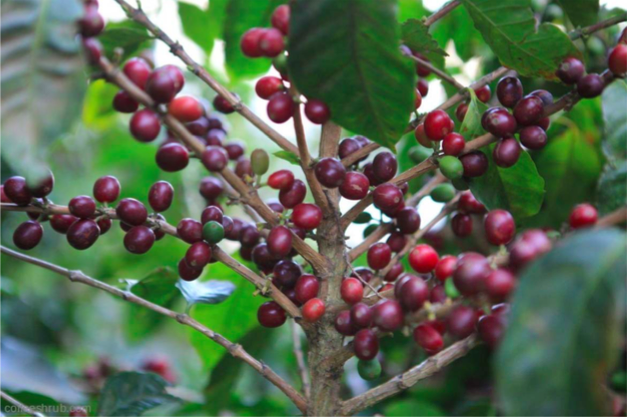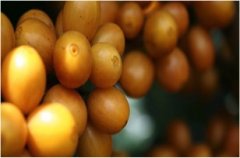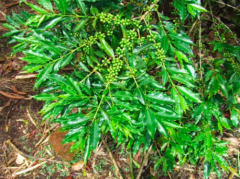Coffee World Map-- Kenya Coffee famous Coffee auction and COE

For professional baristas, please follow the coffee workshop (Wechat official account cafe_style)
"Let farmers earn what they deserve" is the basic belief of the coffee boutique movement. Although Cup of Excellence is currently the most representative and transparent competition in the industry, many of the details are actually modelled on the coffee auction (Kenya Coffee Auction) which has been world-famous in Kenya since the 1930s.
Kenya (Kenya) is located in eastern Africa, adjacent to Ethiopia, the "source of coffee". Despite the fertile soil, coffee was first grown in the country when Bourbon (also known as French mission, to commemorate the introduction of French missionaries) was introduced from Brazil in 1893; like the story of "go left, go right", coffee did not move inland to the south but to the Red Sea. After hundreds of years of spread, after settling down and mutating all over the world, he returned to his hometown, the Great Rift Valley (The Great Rift Valley).
As a British colony, it is only natural that the benefits of exporting coffee are skewed towards the sovereign state. Until 1954, Kenyans owned only 5000 acres of arable land, most of which were controlled by the British and sent to London for auction. Although the colony seems to have been exploited, without the British laboratory Scott Laboratories, Kenyan coffee would not have been what it is today. Because its representative varieties SL-28 and SL-34 are two of the 40 kinds of coffee grown in the laboratory that year. At present, the popular varieties in Kenya include Ruiri 11 with high disease resistance but slightly lower taste, and Batian, K7 and Kent with high drought resistance.
The Maomao uprising (Mau Mau Uprising), which took place in 1956-60, returned most of the control of cultivated land to indigenous people. Coffee farms are mostly small-scale operations with an annual output of hundreds of kilograms. They will decide to sell the fruit to the nearby processing plant (Coffee Factory) according to the delivery distance and the purchase price. The famous Karagoto Coffee, for example, is actually a processing plant around the town of Karatina. After collecting the coffee fruits of nearby farmers, they will be processed and exported. It will also provide farmers with technical support for planting. Karagoto itself, on the other hand, combines Tegu and Ngunguru processing plants to form a Tekangu Farmers Cooperative Society,FCS. Most of the famous producing areas in Kenya are concentrated in the central part, such as Nyeri, Kiambu, Kirinyaga and the western mountains near Uganda (Nakuru, Bungoma, Kitale, etc.).
Coffee auction ensures the interests of farmers
The Coffee Exchange (Coffee Exchange) in Nairobi, the capital, holds auctions every Tuesday during the harvest month. About 50 government-approved exporters in the country classify and rate coffee batches, send samples to potential foreign buyers for cup evaluation, and bid later. There are also foreign companies entrusting approved market agents (marketing agent) to conduct direct transactions (Direct Trade). All the steps are clear and transparent and regulated by the Kenya Coffee Agency Coffee Board of Kenya to ensure that all money after deducting costs goes to farmers.
The industry has used "blackcurrant juice" to describe typical Kenyan coffee: heavy taste, red wine-like aroma, distinct acidity. These qualities cannot be found in other places of origin. Unfortunately, the coffee industry accounts for only 10% of Kenya's total economic income. As the demand for land increases, coffee farmers may give up planting because of a decline in the incentive to produce coffee. This is probably a common problem of urbanization.
Patrick Tam (owner of the boutique coffee shop Knockbox, approved barista of the American Fine Coffee Association and European Fine Coffee Association, CQI recognized cup tester, Cup of Excellence's first Hong Kong judge)
Important Notice :
前街咖啡 FrontStreet Coffee has moved to new addredd:
FrontStreet Coffee Address: 315,Donghua East Road,GuangZhou
Tel:020 38364473
- Prev

Coffee World Map--Introduction to Rwandan Coffee Development, Processing and Varieties
Professional barista exchanges, please pay attention to coffee workshop (Weixin Official Accounts cafe_style ) Rwandan coffee, the most popular African coffee after Kenya and Ethiopia. However, unlike the two famous producing countries, it has no long history of cultivation, let alone wild native varieties; this small African country is a fire phoenix reborn after disaster. Rwanda is known as
- Next

Coffee World Map-- Coffee tradition and planting pattern in Ethiopia
For professional baristas, please follow the coffee workshop (Wechat official account cafe_style) in the Bible. In Genesis, Adam and Eve are expelled from the Garden of Eden for eating the fruit of the tree of wisdom. There is no doubt that this fruit has been recognized as an apple (snake) fruit when I read books when I was a child. But in fact, the Bible never mentioned its name; the first coffee tree happened to be related to the earliest human fossils (Ardi)
Related
- Does Rose Summer choose Blue, Green or Red? Detailed explanation of Rose Summer Coffee plots and Classification in Panamanian Jade Manor
- What is the difference between the origin, producing area, processing plant, cooperative and manor of coffee beans?
- How fine does the espresso powder fit? how to grind the espresso?
- Sca coffee roasting degree color card coffee roasting degree 8 roasting color values what do you mean?
- The practice of lattes: how to make lattes at home
- Introduction to Indonesian Fine Coffee beans-- Java Coffee producing area of Indonesian Arabica Coffee
- How much will the flavor of light and medium roasted rose summer be expressed? What baking level is rose summer suitable for?
- Introduction to the characteristics of washing, sun-drying or wet-planing coffee commonly used in Mantenin, Indonesia
- Price characteristics of Arabica Coffee Bean Starbucks introduction to Manning Coffee Bean Taste producing area Variety Manor
- What is the authentic Yega flavor? What are the flavor characteristics of the really excellent Yejasuffi coffee beans?

